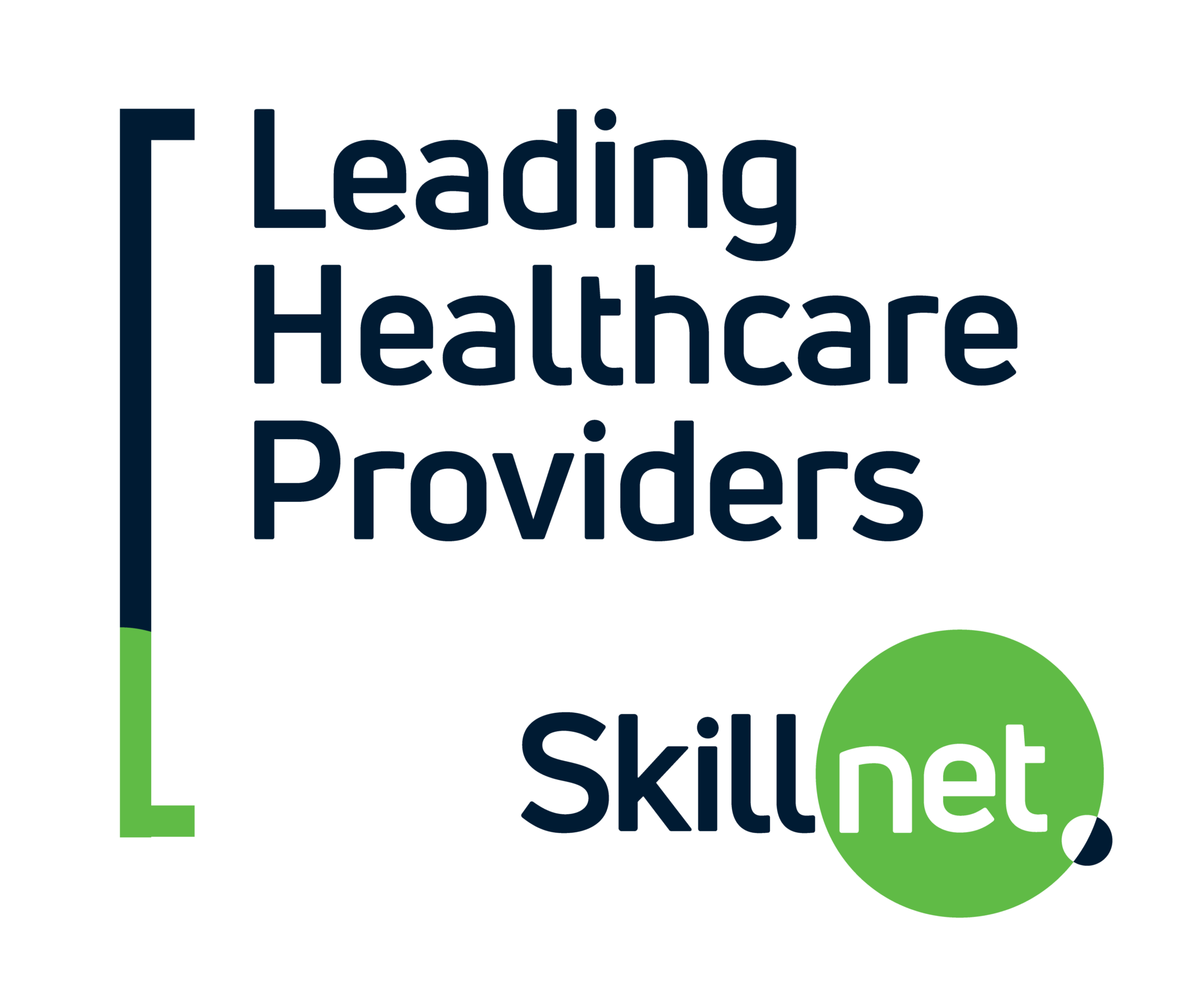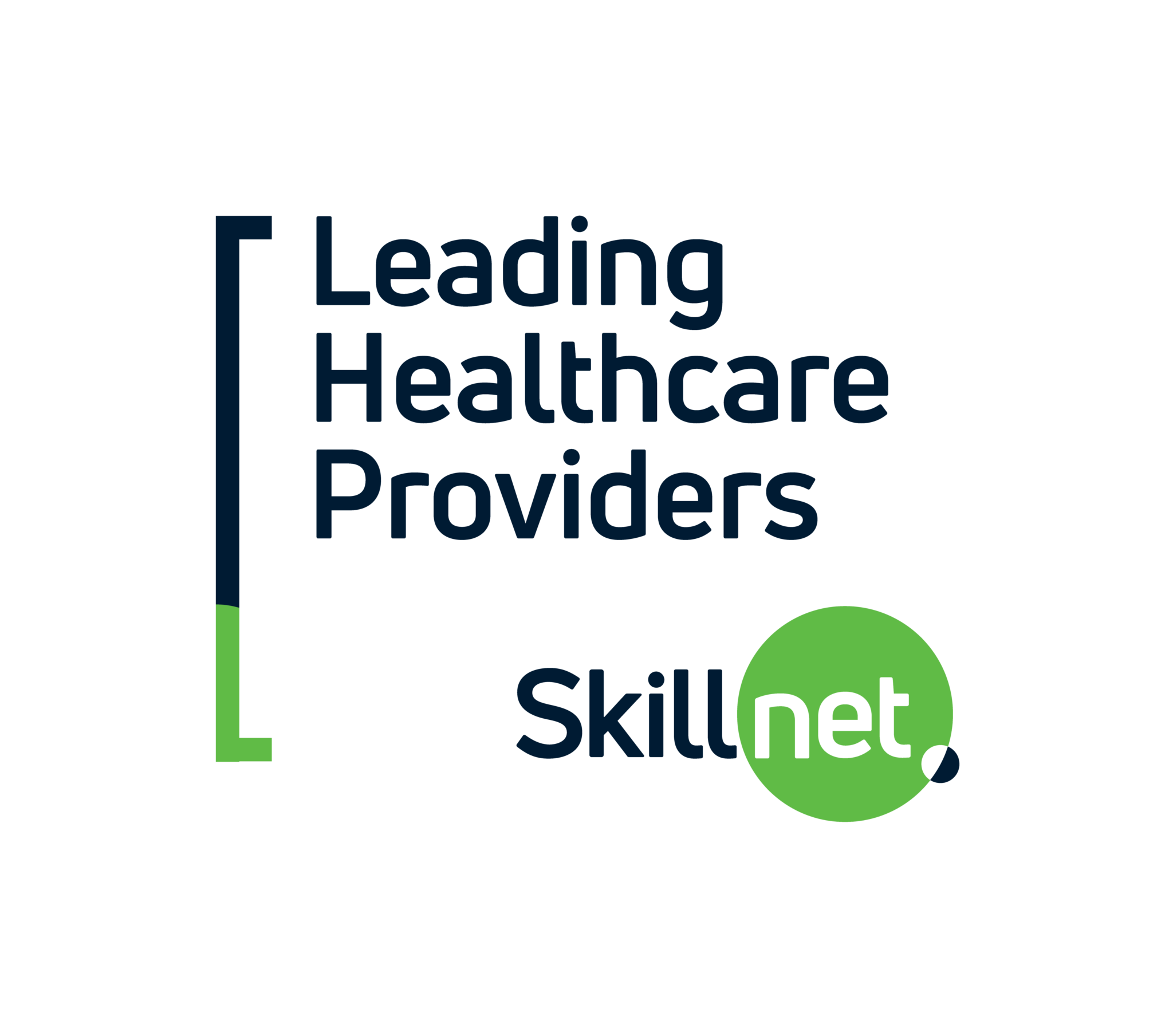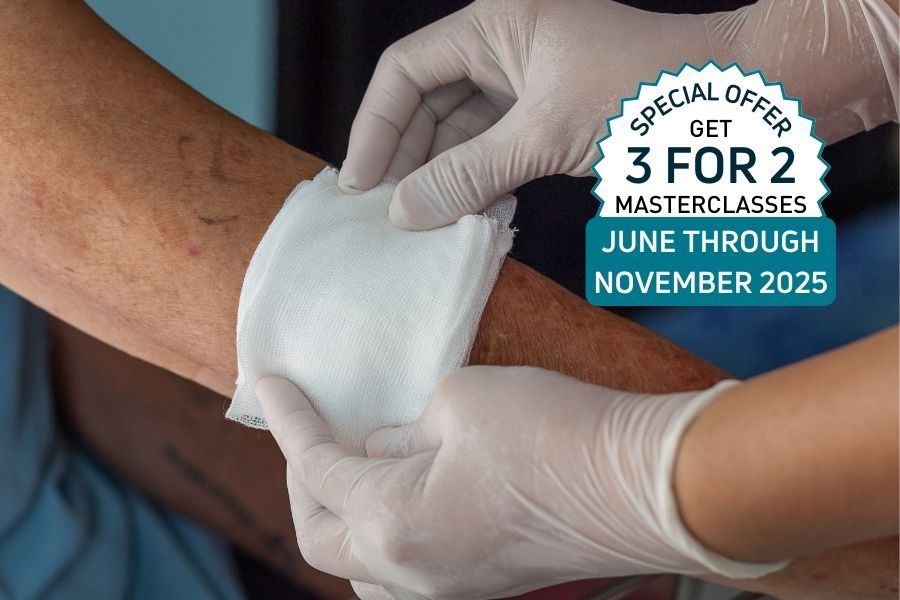by Clodagh Killeen
Share
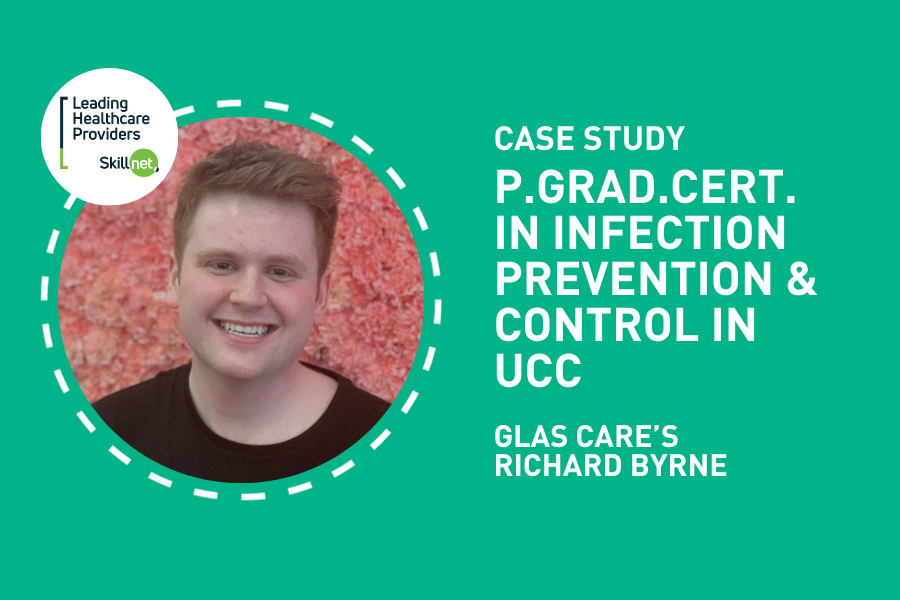
by Clodagh Killeen
Share
Leading Healthcare Providers Skillnet – Postgraduate Certificate in Infection Prevention & Control (IPC) in UCC
Associate Director with Glas Care Richard shared his experience of the IPC Programme which was developed to meet the needs of the residential care sector.
Background
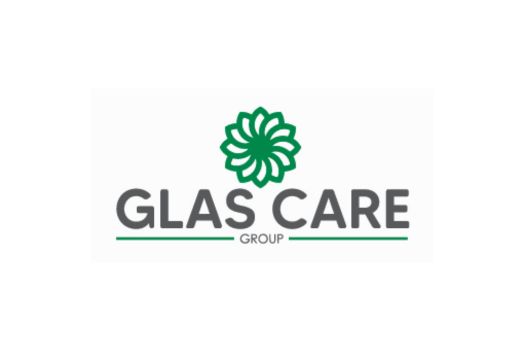
Glas Care is a new and growing nursing home group that looks forward to enhancing the lives of current and future residents through evidence-based practice that is inclusive of an individual’s needs.
Glas Care has three locations: Ashford House Nursing Home in Dun Laoghaire, Newpark Care Centre in The Ward, and Beechtree Nursing Home in Oldtown, Murragh. Richard’s role as Associate Director includes clinical oversight and supporting their clinical teams.
In January 2020, Richard left his role as a registered nurse in an acute hospital to work full time as a manager in Ashford House Nursing Home, Dun Laoghaire. After hearing that LHP Skillnet were supporting member companies with a Post-graduate Certificate in IPC, Richard and the Director of Nursing in Ashford House Nursing Home signed up for the programme in September 2020.
“We had done 3-day courses on Infection Prevention Control offered through private providers, but we decided to do this together to have the qualification at level 9 to support our IPC divisions within the nursing home”.
The Challenge
The Covid Pandemic highlighted the gap in Infection Prevention Control education for the residential care sector. The risk of infection for nursing home residents increased during the first year of the COVID 19 pandemic infection, with 29% of COVID deaths occurring in nursing homes between March 2020 and February 2022 (Central Statistics Office, 2022).
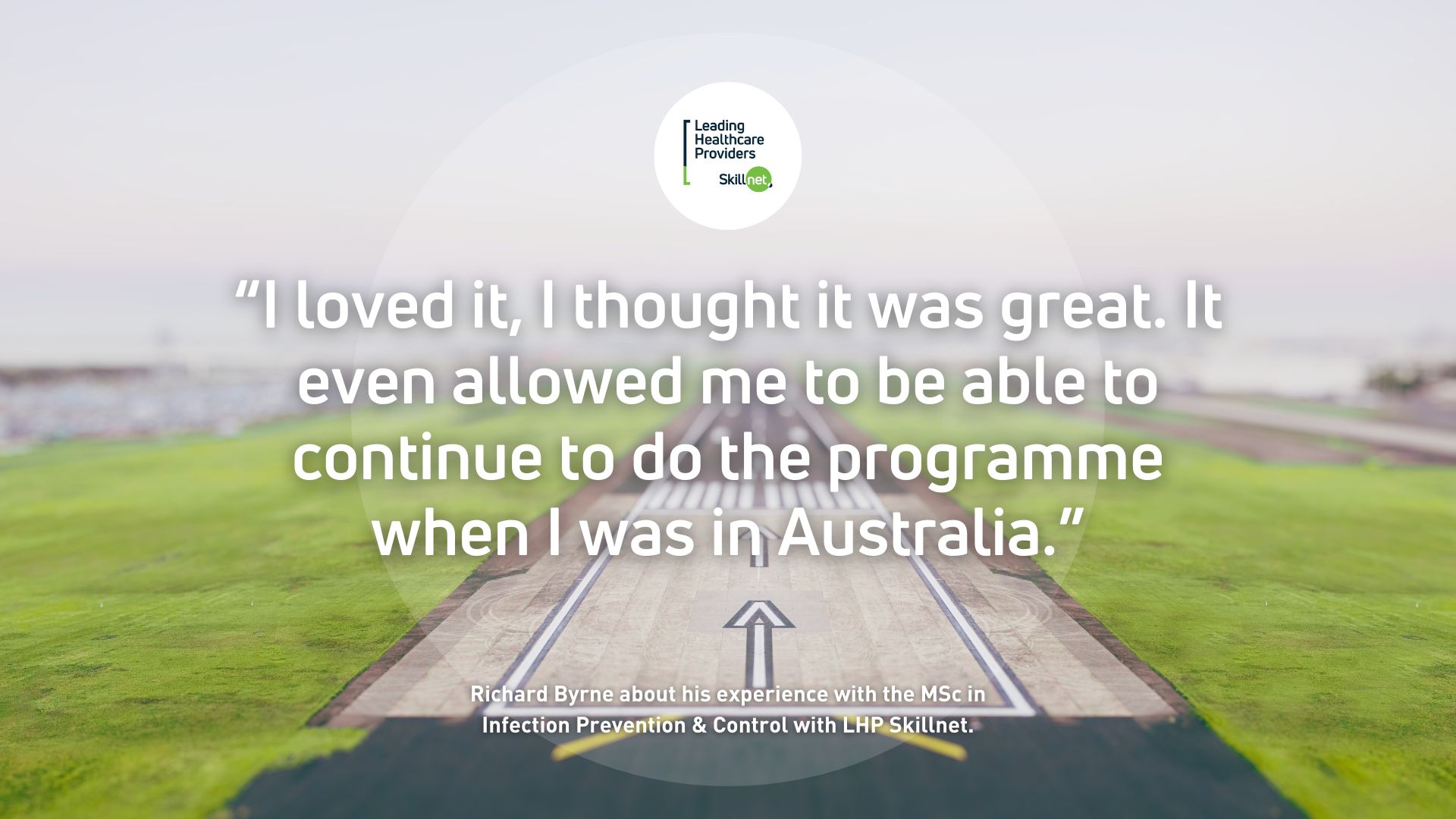
The Solution
In 2020, LHP Skillnet collaborated with the School of Public Health in UCC , Cork University Business School, and the School of Microbiology in University College Cork to develop a Postgraduate Certificate in Infection Prevention Control that was specifically designed to support those working in the residential care sector to address the growing need for further education in IPC. It launched the programme in September 2020 as an online programme.
Objectives
- To support the residential care sector to meet the educational needs in Infection Prevention and Control at Level 9.
- To be accessible to those who are in full-time employment in a busy healthcare environment.
- To provide an opportunity for peer-to-peer learning
- To promote high quality infection prevention control leadership within residential care centres to protect residents and have a direct impact on resident outcomes.
Benefits
The Postgraduate Certificate in IPC facilitated Richard in gaining in-depth knowledge to further support his clinical teams.
- “I really liked that the theoretical and practical parts of the course that can lead to good practice, sometimes managers have to take a step back and look at what their staff are doing that works well. This leads to better practice as we implement those things that are working well into our policies and the change happens from the ground up.”
Richard pointed out that residents and families will benefit from the knowledge he acquired.
- “It offers reassurance to families to know that management have invested in specialist education in IPC that will keep their loved ones safe.”
The course supported Richard in achieving and maintaining compliance around IPC with HIQA.
- “Being able to be confident that you now have the knowledge to support the centres with compliance with Regulation 27 of the Health Act 2007”.
Richard has already started to apply his knowledge to enhance his practices.
- “It equips you to write your own policies and procedures and be confident in your practices. ”
Online Aspects
- “I loved it, I thought it was great. It even allowed me to be able to continue to do the programme when I was in Australia.”
Peer-to-Peer Learning
Richard described the benefit of working collaboratively with other peers on the programme and that they kept in touch even after the programme finished. “It’s great to hear from others who have done the programme and how they have developed into new roles since doing the programme.”
Outcomes
Initially, the only progression from the Postgraduate Certificate in IPC was to do a MSc. in Public Health. Due to the success of the programme and the demand for further progression, the programme was extended to offer an additional year to complete a Masters in Infection Prevention Control. This was launched in 2022.
“I completed the postgraduate in 2021 but at that stage there was only the MSc. in Public Health which I didn’t want to do as I wanted to stay in the residential care sector. When they extended the programme to the Masters. in IPC, I signed up straight away.”
Richard completed his thesis on “the impact of IPC Champions in Irish Nursing Homes” in which his findings were that once someone had a focus on IPC within the centre (whether this is a Healthcare Assistant, a Nurse or a Manager) and knowledge sharing occurred that benefits could be seen across the board. This has added to the quality of IPC within the group’s home as each has an IPC champion within their teams.
The programme had an intake of 46 in 2020 and 69 in 2021 and then was extended to role out a Masters in Infection Prevention Control which was launched in 2022.
Programme Completion
To further understand the impact of the programme, LHP Skillnet has commissioned research to investigate the impact of graduates on IPC in the clinical setting post engagement and completion of the Level 9, PGCertIPC. We will examine how has the application of infection prevention changed in organisations with graduates in post, and what are the graduates’ and managers’ perceptions of the training received and the value to clinical practice.
Our 6-day Leadership for Healthcare programme is tailored to address the particular challenges of leading people and organisations in the residential and home care sector. For this purpose, it offers practical approaches to applying leadership...
We have received numerous inquiries lately regarding management qualifications, especially about the required qualifications for the Person In Charge (PIC). In this blog post, we discuss what this means for your organisation and outline...
Enhancing Private Healthcare: Exclusive Live Online Masterclasses in Infection Prevention & Control In the ever-evolving landscape of private healthcare, staying ahead of best practices and regulatory requirements is essential. To support professionals in delivering...
